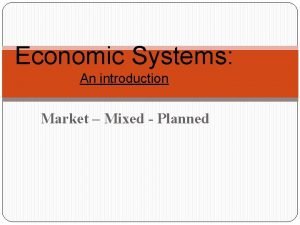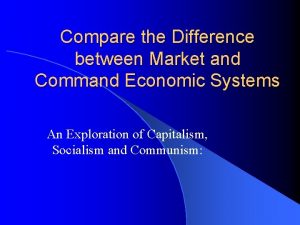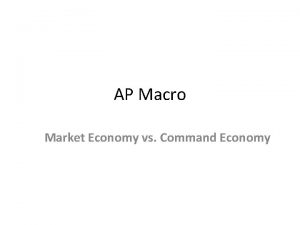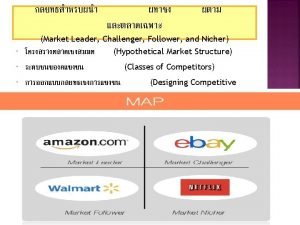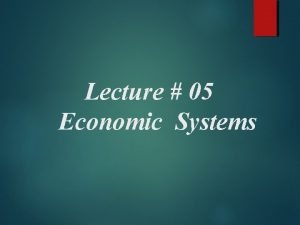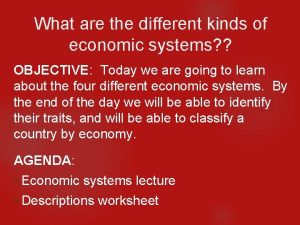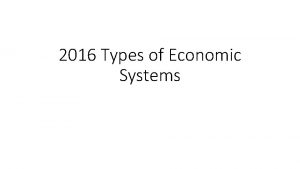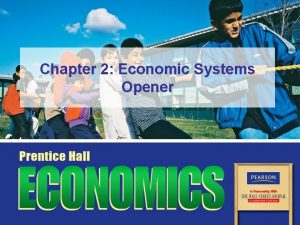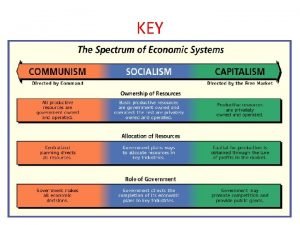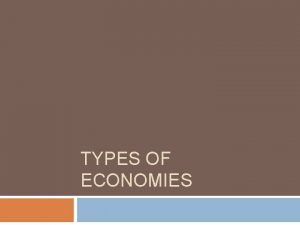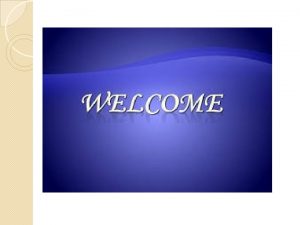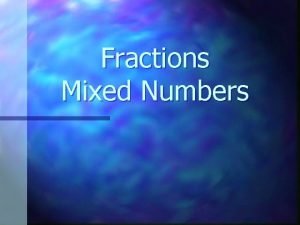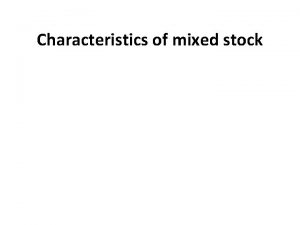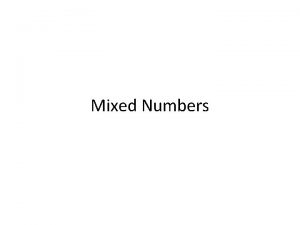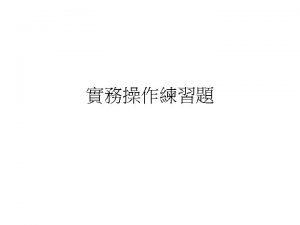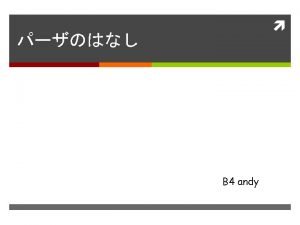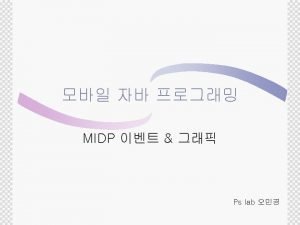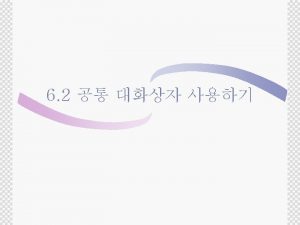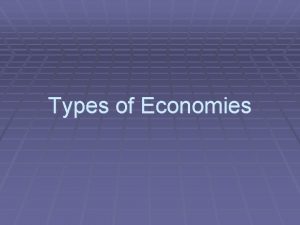Command Economy Mixed Economy Market Economy m o












- Slides: 12

Command Economy Mixed Economy Market Economy

m o a m Tra dit ion al d n M C Economic System MIXED ar ke t • Explains how a country answers the three questions of economics: • 1) What to produce? • 2) For whom to produce? • 3) How to produce?

• Government decides what is produced, who receives goods and services, and how things are produced • Examples: North Korea and Cuba are close to pure command economies Command Economy

• Consumers and producers determine what’s produced, who receives goods/services, and how things are produced (supply & demand) • Also called “capitalism” or “free market” • Encourages entrepreneurs (creators of new businesses) Market Economy

• Economic decisions are based on a country’s or society’s customs and habits • Old ways of doing things—hunting or farming • Not common Traditional Economy

• When a country combines elements of market and command systems (and sometimes traditional elements as well) • Most societies fall under this category, including ours! Mixed Economy

Economic Systems Pure Command Pure Market Mixed Economy

c i m o n o Ec tems s y S China 51% United States 78% Japan 73% 0 100 Pure Command Pure Market Mixed Economy

• Gross Domestic Product • Total value of all goods and services produced in a country in a year • Investment in human capital and capital goods usually leads to increased GDP

• A person who combines resources to create new businesses • Entrepreneurs + land, labor, and capital = goods and services Entrepreneur John Pemberton

• Trade = the exchange of goods and services in a market (Domestic— traders inside same country; international—exports and imports) • Exports: Goods produced within one country and sold outside of the country • Imports: Goods/services sold in a country but produced in other countries • Currency = money • Why do we need a system for exchanging currency for international trade? Trade

• Tariff = a tax on imports or exports • Quota = a restriction or limit on the amount of a good that can be imported (government imposed) • Embargo = a government ban on certain imports for political or economic reasons Trade Barriers
 Faming
Faming Compare and contrast market and command economy
Compare and contrast market and command economy Market vs command economy
Market vs command economy Leader challenger follower
Leader challenger follower Targeting segmentation positioning
Targeting segmentation positioning Command economy political cartoon
Command economy political cartoon Characteristics of mixed economic system
Characteristics of mixed economic system Disadvantages of a mixed economy
Disadvantages of a mixed economy Disadvantages of a mixed economy
Disadvantages of a mixed economy Economics mixed economy
Economics mixed economy Mixed economy examples
Mixed economy examples 3 types of economies
3 types of economies Activity 1 let's review
Activity 1 let's review
